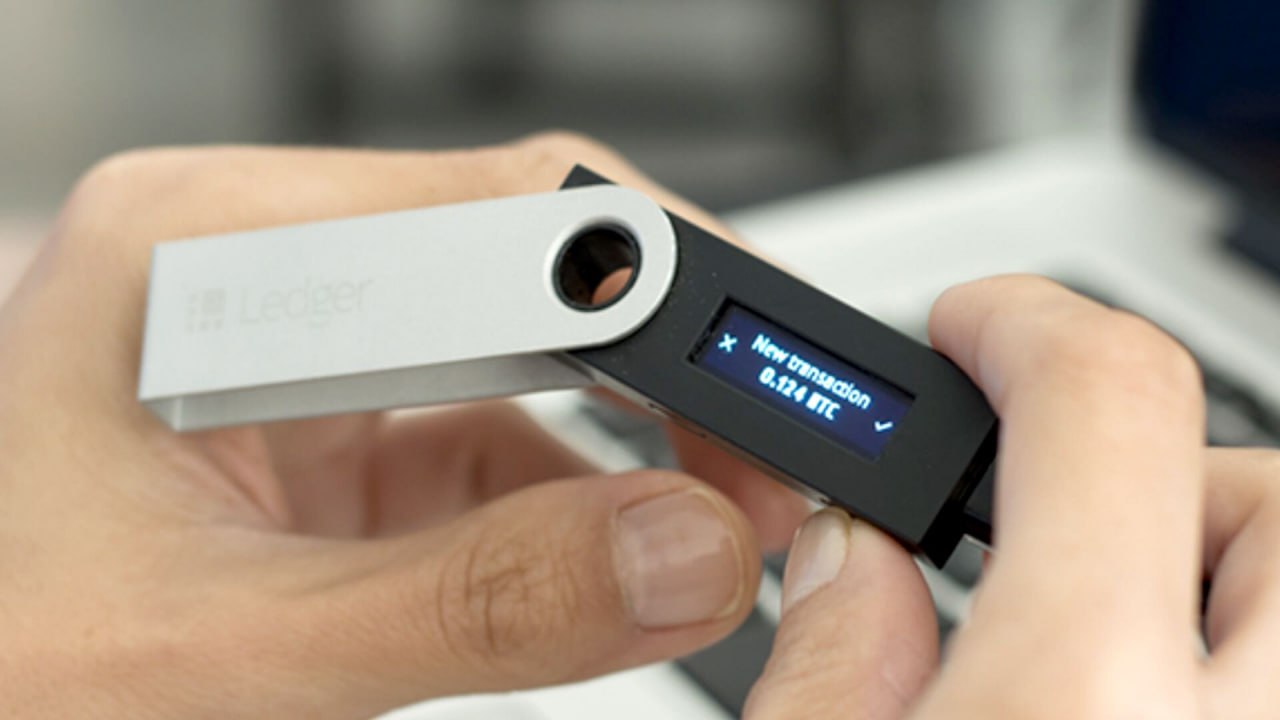In the ever-evolving world of cryptocurrency, security has become a paramount concern for investors and traders alike. The risk of hacking and theft has intensified with the increasing value and popularity. To combat these threats, hardware wallets have emerged as a reliable solution for storing and safeguarding cryptocurrencies. This article will study the concept of hardware wallets, their advantages, and why they are considered one of the most secure digital asset storage methods.
What are Hardware Wallets?
In the realm of cryptocurrency, security is paramount. As the demand for digital assets grows, robust measures to protect these valuable assets become increasingly essential. Hardware wallets, also known as cold wallets or hard wallet crypto, have emerged as reliable solutions to store and manage cryptocurrencies securely.
A hardware wallet is a physical device specifically built to store and protect the private keys associated with cryptocurrencies. Private keys are essential cryptographic codes that allow users to access and control their digital assets securely. Unlike software wallets connected to the internet or stored on mobile devices, hardware wallets keep the private keys offline, minimizing the risk of online attacks and potential vulnerabilities.
The primary advantage of hardware wallets lies in their enhanced security features. Hardware wallets protect against various threats, including hacking attempts, phishing scams, and malware, by keeping the private keys offline and isolating them within a secure device.
Hardware wallets are designed with multiple layers of security to safeguard private keys. These devices often employ specialized chips known as secure elements or secure microcontrollers. These chips are designed to resist physical and software attacks, ensuring that the private keys in the hardware wallet remain secure.
Additionally, hardware wallets implement encryption algorithms and other security measures to protect the stored private keys. These encryption methods make it extremely difficult for unauthorized individuals to access private keys even if the physical device is compromised. Most hardware wallets also require a PIN code or a password to access the stored cryptocurrencies, further enhancing security.
In the event of loss or theft of a hardware wallet, most devices offer a recovery process. During the initial setup, users are given a seed phrase, a series of words that act as a backup. This seed phrase can be used to retrieve the wallet on a new or replacement device, ensuring that users can regain access to their funds even if the hardware wallet is lost, damaged, or stolen.
Apart from their unparalleled security, hardware wallets also provide a user-friendly experience. Manufacturers of hardware wallets prioritize simplicity and ease of use, ensuring that experienced users and those with limited technical knowledge can confidently utilize these devices. Most hardware wallets feature intuitive interfaces and clear instructions for setup and use, making the process straightforward and accessible to all.
Furthermore, hardware wallets often support multiple cryptocurrencies, allowing users to store digital assets within a single device. This multi-currency support eliminates the need for multiple wallets, streamlining the management of different cryptocurrencies and enhancing user convenience.
Portability is another advantage of hardware wallets. These devices are created to be compact and lightweight, allowing users to carry them conveniently. Users can securely access their cryptocurrency holdings without an internet connection, whether traveling or moving between devices. The portability of hardware wallets provides flexibility and accessibility for users to manage their digital assets wherever they go.

How Do Hardware Wallets Work?
Hardware wallets function through encryption and secure microcontrollers, providing a secure environment for generating, storing, and accessing cryptocurrency private keys.
The setup process of a hardware wallet typically involves generating a seed phrase. This seed phrase consists of a sequence of 12 or 24 words randomly generated by the device. It is crucial to store and keep this seed phrase offline securely, as it serves as a backup that enables the restoration of the wallet in case the hardware device is lost, damaged, or replaced.
Private keys, essential for accessing and managing cryptocurrencies, are generated within the hardware wallet during setup. These private keys never leave the secure environment of the device. By storing the private keys offline, hardware wallets mitigate the risk of online attacks, such as malware, phishing scams, or hacking attempts.
The core security feature of hardware wallets lies in using secure microcontrollers or elements. These specialized chips are designed to protect against physical and software attacks. Secure microcontrollers are equipped with tamper-resistant features, making it extremely difficult for malicious actors to extract sensitive information from the device, such as private keys.
The private keys in the hard wallet crypto are securely encrypted and protected by the secure microcontroller. This encryption ensures that the private keys remain inaccessible to unauthorized individuals even if the physical device is compromised. The encryption algorithms used in hardware wallets are carefully selected to provide a robust and reliable level of security.
When initiating a transaction, the hardware wallet interacts with the user's computer or mobile device to sign the transaction using the private keys stored within the device. The hardware wallet securely performs the necessary cryptographic operations to create a digital signature confirming the transaction's authenticity and integrity.
Once the transaction is signed, the hard wallet crypto sends the signed transaction to the cryptocurrency network for verification and inclusion in the blockchain. This process ensures the transaction is securely and transparently processed without exposing private keys or sensitive information to potential threats.
Hardware wallets also incorporate additional security measures, such as requiring a PIN code or password to access the stored cryptocurrencies. This adds a layer of protection if the device falls into the wrong hands.
Advantages of Hardware Wallets
Hardware wallets have gained significant popularity in cryptocurrency due to their unmatched security features and numerous advantages over other forms of cryptocurrency storage. This section will explore the advantages of hard wallet crypto in greater detail, highlighting their superior security, protection against physical theft, user-friendly experience, and portability and backup options.
A. Unparalleled Security
When securing cryptocurrencies, hardware wallets offer an unparalleled level of security. By keeping private keys offline, they eliminate the risk of online attacks. These devices store private keys in a secure environment, typically a specialized chip known as a secure element or microcontroller. The private keys never leave the hardware wallet.
Even if a computer or mobile device used with a hardware wallet is compromised, the funds stored within the wallet remain safe. The private keys stored offline cannot be accessed or compromised by malicious software or unauthorized parties, ensuring the integrity and security of the digital assets.
B. Protection Against Physical Theft
Hardware wallets are designed to withstand physical attacks and protect against theft. These devices are typically made with tamper-resistant materials and employ advanced encryption algorithms to safeguard the stored private keys.
In addition to encryption, hardware wallets often require a PIN code or a password to access the stored cryptocurrencies. This means that even if the physical device falls into the wrong hands, the thief would need the PIN or password to gain access to the funds. The combination of physical security measures and encryption makes hard wallet crypto highly resistant to unauthorized access and theft.
Furthermore, most hardware wallets offer a recovery process in the event of loss or theft. During the initial setup, users are given a seed phrase consisting of a sequence of words. This seed phrase acts as a backup and can be used to restore the wallet on a new or replacement device. If the seed phrase is kept securely, users can regain access to their funds even if the hardware wallet is damaged, lost, or stolen.
C. User-Friendly Experience
Despite their advanced security features, hardware wallets are designed to be user-friendly, catering to experienced users and those with limited technical knowledge. Most hardware wallets come with intuitive interfaces and clear instructions for setup and use, making the process straightforward and accessible.
The user-friendly interfaces of hardware wallets often provide a seamless experience for managing cryptocurrencies. Users can easily view their balances, initiate transactions, and verify transaction details on the device's screen. Some hardware wallets also offer companion software applications that provide additional functionalities like portfolio management and firmware updates.
Furthermore, hardware wallets are compatible with various operating systems, including Windows, macOS, Linux, and mobile platforms like Android and iOS. This compatibility ensures users can conveniently access and manage their cryptocurrencies across different devices without compromising security.
D. Portability and Backup Options
Hardware wallets offer the advantage of portability, allowing users to carry their digital assets securely wherever they go. These compact, lightweight devices make them easy to carry in pockets, bags, or keychains. Having complete control over one's cryptocurrency holdings in a portable device adds convenience and flexibility to users' investment strategies.
Moreover, hard wallet crypto often provides backup options to safeguard against loss or damage. During the initial setup, users are instructed to create a seed phrase, a backup of the private keys stored within the hardware wallet. This seed phrase can be written down and stored securely in multiple locations, ensuring users can recover their wallets in unexpected circumstances.
The backup feature of hardware wallets also allows users to switch between devices or replace a malfunctioning hardware wallet without the risk of losing their funds. Users can seamlessly restore their wallets and regain cryptocurrency access by entering the seed phrase into a new device.
Most Popular Hardware Wallets
Regarding hardware wallets, several options have gained significant recognition for their security, features, and usability. This section will explore some of the most popular hardware wallets available today, their unique qualities, and why cryptocurrency enthusiasts favor them.
A. Ledger Nano S and Nano X
The two Ledgers are highly acclaimed hardware wallets produced by Ledger, a leading company in the cryptocurrency security industry. These devices have gained a strong reputation for their robust security measures and compatibility with various cryptocurrencies.
The Ledger Nano S, the predecessor to the Nano X, features a compact design and a small OLED screen. It enables a simple and secure way to store and manage cryptocurrencies. The Nano S supports a broad range of digital assets and employs a secure element chip to protect the private keys stored within the device.
The Ledger Nano X, an upgrade to the Nano S, offers enhanced features and a more intuitive user experience. It boasts a larger screen and Bluetooth connectivity, enabling wireless transactions and mobile compatibility. The Nano X provides a seamless experience for managing cryptocurrencies, with the Ledger Live software being a comprehensive platform for accessing various features and performing firmware updates.
The Nano S and Nano X utilize a secure element chip to isolate private keys and ensure maximum protection against potential attacks. With their user-friendly interfaces, compatibility with multiple cryptocurrencies, and regular firmware updates, Ledger Nano S and Nano X have become go-to choices for many users seeking a secure hardware wallet solution.
B. Trezor Model T
The Trezor Model T is another highly regarded hardware wallet known for its advanced security features and user-friendly design. Developed by SatoshiLabs, the Trezor Model T offers a touchscreen interface and a sleek design that enhances usability and accessibility.
The Trezor Model T supports a wide range of cryptocurrencies and is designed to provide secure storage and transaction signing capabilities. It features a secure element chip that stores private keys and ensures their isolation from potential threats. The Trezor Suite software is a comprehensive platform for managing cryptocurrencies, providing an intuitive interface for accessing different features and settings.
The touchscreen display of the Trezor Model T allows for easy navigation and verification of transaction details directly on the device. With its emphasis on security, user experience, and compatibility, the Trezor Model T has gained a loyal user base among cryptocurrency enthusiasts who prioritize a balance between security and usability.
C. KeepKey
KeepKey is a user-friendly hardware wallet that stands out for its large screen, which enhances visibility and usability. This sleek and compact device supports many cryptocurrencies and offers a seamless user experience.
One notable feature of KeepKey is its integration with the ShapeShift exchange platform. Users can trade assets directly from their KeepKey wallets, eliminating the need for external exchanges. This integration adds convenience and simplifies the process of managing and exchanging cryptocurrencies.
KeepKey employs advanced security measures, including private key isolation, PIN code requirements, and backup and recovery options. The device's large screen improves visibility and aids in verifying transaction details, providing an added layer of security.
With its user-friendly interface, compatibility with multiple cryptocurrencies, and integrated exchange functionality, KeepKey has become popular among beginners and experienced cryptocurrency users.
While hardware wallets are a great option, they are not free and require purchasing a physical device. Suppose you seek an alternative that maintains high-security standards without compromising on convenience. In that case, our wallet leverages private key encryption while protecting your private keys with Secure Enclave, PINs, biometric authentication, and 2-Factor Authentication.
Conclusion
As cryptocurrencies continue gaining mainstream recognition and adoption here at PlasBit, we cannot emphasize the importance of secure storage solutions. Hardware wallets have emerged as a trusted option for safeguarding digital assets, providing users with unparalleled security, protection against physical theft, and a user-friendly experience. With the growing range of options available in the market, investors and traders can choose a hardware wallet that suits their needs, offering peace of mind and confidence in the security of their cryptocurrency holdings.







